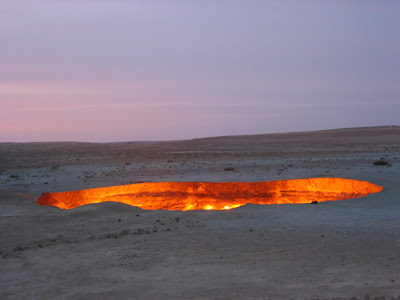Natural Gas Leaks, Too
Posted by
BP SSI
on Tuesday, April 17, 2012
Last week I went briefly through the cause of the Deepwater Horizon explosion. Even though that tragedy — rightfully — got tons of national media attention, that doesn’t mean that there aren’t many industrial power generation accidents happening throughout the world.
Why, not that long ago there was a pretty big scare out in the British North Sea, though there weren’t 24/7 news updates about it.
One of the bigger natural gas drilling wells suffered a significant setback when it sprung a natural gas leak. All of the drilling platforms for a several mile radius had to be evacuated due to worries about possible explosions triggering similar disasters to the one from the Gulf of Mexico.
Unlike 2010’s Gulf tragedy, this North Sea leak has to do with a steady leak of natural gas rather than oil. Though, as we saw last week, gas leaks can quickly lead to massive complications.
One of the large concerns with this industrial power generation accident is that a steady natural gas leak will be extremely hazardous for the environment. Natural gas is a potent greenhouse gas, significantly worse than carbon dioxide. This leak has sprung up just as natural gas has seen a resurgence. The AP recently reported that there’s actually a giant surplus of natural gas, saying, “So much natural gas is being produced that soon there may be nowhere left to put the country’s swelling surplus.” And in the UK, where this recent leak occurred, Britain is in the midst of passing a $4.8 billion tax break to dismantle oil platforms and create natural gas wells.
So far, the leak is just a (rather large) cause for concern rather than a full-blown tragedy. But it will be interesting to see when reports come out as to the leak’s exact causes. Industrial power generation is not for the careless or unfortunate.
In the end, a big leak or explosion would, of course, be terrible. But it could be even worse. I recently came across the strange case of Derweze, also known as the "Door to Hell" (pictured at the top of this post). It resulted from a 1970 Soviet drilling accident in a tiny village in Turkmenistan. When a drilling rig accidentally created a huge hole in the ground that swallowed up the platform, the drillers set the hole on fire to burn off any excess gas. Well, it turns out there's a lot of excess gas, since the hole is still burning today. It is over 230 feet around. No one knows when or if it will stop burning.
Two Years Later, The Cause Is Unclear? Deepwater Explosion Not Caused By Oil.
Posted by
BP SSI
on Wednesday, April 11, 2012
 | |
I asked some of my friends and family members recently what caused the Deepwater Horizon tragedy. Even though they are all informed, smart people, not many of them knew precisely what happened — even two years later. But the truth is out there, and pretty readily discernible. Unfortunately, the nightly news doesn’t have the time or technical expertise to tell you exactly what happened.
I came across a great, in-depth post over at Energy Bulletin that goes specifically into the known knowns of why the Deepwater Horizon leak, at least, happened, which seems to have cause the massive explosion.
While the thousands of gallons of oil grabbed the headlines, gas is actually what started everything.
Specifically, gas built up very early on in the drilling and oil excavating process, which started way back on April 19. 2010. At that point, not enough cement was used at the point of drilling, some 18,000 feet below sea level. Because of that mistake, the cement seal at the floor of the ocean did not “take”, meaning that gas and mud built up where drilling took place. An increase in the measured amount of gas was charted on April 20, and pressure in the main pipe fluctuated as gas and mud worked their insidious effects at the place the cement seal. Finally, a blowout began when gas pressure overcame the wellhead seals. Gas shot straight out of the water, igniting and exploding.
So in the end, it was not the oil itself that exploded. And in fact, setting the leaking oil on fire was one option during the struggle to get the leak contained — but it was decided against as being too harmful to the local environment.
Simple gas pressure caused a critical breakdown:
The blowout and oil spill on the Deepwater Horizon in the Gulf of Mexico was caused by a flawed well plan that did not include enough cement between the 7-inch production casing and the 9 7/8-inch protection casing.
